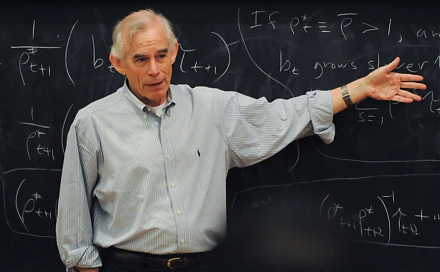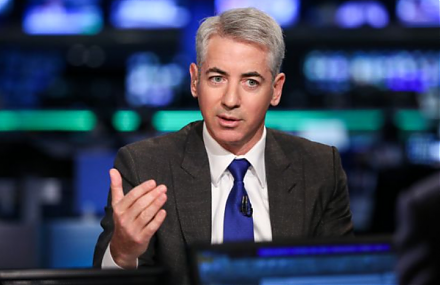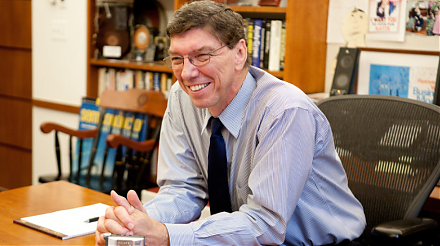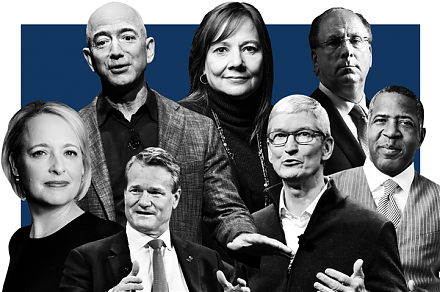

2025-05-21 04:27:10 Wed ET
stock market technology platform network scale lean startup fifth discipline value creation flywheel perseverance resilience passion reinvention disruptive innovation purpose vision mission blue ocean personal finance grit self-help self improvement focus motivation personal growth
Carol Dweck describes, discusses, and delves into the scientific reasons why the growth mindset often helps motivate individuals, teams, and managers to accomplish more with greater grit, focus, and resilience.
Carol Dweck (2017)
Mindset: focus, mood control, motivation, perseverance, and the growth mindset
Stanford psychology professor Dr Carol Dweck delves into some scientific reasons why the growth mindset often helps motivate individuals, teams, and managers to accomplish more with greater grit, focus, resilience, persistence, and so forth. The new psychology of success suggests that many people apply the growth mindset to better adapt to structural changes in the world. This adaptation further improves human relationships, intellectual worldviews, and personal growth advancements with smarter, better, and more flexible personality traits, leadership styles, scientific research pursuits, entrepreneurial ventures, and other lifelong endeavors. Instead of raw intelligence, the growth mindset empowers each person to make conscious efforts to learn new lessons, insights, worldviews, and other ideas, and this growth mindset often leads to lifelong opportunities for personal growth, wisdom, maturity, disruptive innovation, technological advancement, and entrepreneurial success.
The world comprises 2 dramatically different groups of people with regard to their respective mindsets. The first group includes people who are open to learning new lessons, insights, ideas, mindsets, and worldviews. By contrast, the second group spans people who seek closure on lifelong opportunities for further improvements. Dweck describes, discusses, and delves into key scientific research articles, news stories, and anecdotes about the pros and cons of both mindsets. As a result, key stories about Michael Jordan, Lee Iacocca, John McEnroe, Wilma Rudolph, Babe Ruth, and some others find their respective places in Dweck’s rare unique insights into the growth mindset. Dweck argues that each one of us can have both mindsets with respect to different aspects of life. Her major insight shows that we often need to apply the growth mindset for further improvements ahead. As we learn to apply the growth mindset more often, we adjust, refine, and even totally change our basic tendency to seek closure. Dweck also extends her major insight by viewing almost all areas of human relationships today. Specifically, she makes efforts to show the vital and practical relevance of the growth mindset in leadership and management. In essence, the growth mindset often conveys more positive lifelong opportunities. This positive growth mindset can help motivate individuals, teams, and managers to accomplish more with greater grit, focus, perseverance, and resilience.
People who believe they can further improve their personality traits over time retain the vital growth mindset. With this growth mindset, these people believe the future presents an opportunity to grow even during hard times. Although various mindsets produce definite worldviews, many people learn to adapt their respective mindsets in response to different aspects of life. Children who often receive parental praises for their raw intelligence tend to reject new challenges without the growth mindset. By contrast, Jack Welch, who had a growth mindset in business management, took over GE in 1980 when the company secured its stock market capitalization of only $14 billion. After Welch applied his growth mindset for further improvements in all parts of the company’s core operations over 20 years, GE grew substantially to an impressive $490 billion stock market valuation in 2000. Also, athletes with a growth mindset build better, stronger, and mature characters by challenging themselves to stretch their physical limits, talents, and capabilities over time. Several legendary athletes from Michael Jordan, Michael Phelps, and Tiger Woods to Usain Bolt and Shohei Ohtani leverage their rare unique growth mindset to incrementally sharpen their respective physical strengths, skills, talents, core competences, and dynamic capabilities over many years.
The growth mindset specifies the rare unique worldview for highly effective people: we can cause profound but incremental changes in our respective personality traits, leadership styles, entrepreneurial ventures, scientific research pursuits, intellectual advances, and other lifelong endeavors for further personal growth advancements. In human history, business cofounders, entrepreneurs, and visionary leaders apply the growth mindset to build great teams before they make great impact in the world. Good entrepreneurial examples include Steve Jobs (Apple), Bill Gates (Microsoft), Elon Musk (PayPal, Tesla, SpaceX, Twitter, xAI, and so on), Jeff Bezos (Amazon), Larry Page and Sergey Brin (Google), Mark Zuckerberg (Meta-Facebook), Jensen Huang (Nvidia), Jack Ma (Alibaba), and Sam Altman (OpenAI), among others. With the rare unique growth mindset, these business leaders tend to work harder when they learn to confront the brutal facts, setbacks, failures, obstacles, difficulties, and disappointments in many unforeseen circumstances, episodes, and vicissitudes of life. Throughout their hard, arduous, and relentless entrepreneurial ventures, these business leaders blaze the trail, innovate new solutions, remain resilient, move fast, and even disrupt some strategic sectors worldwide. The core passion for stretching oneself is the mainstream hallmark of the growth mindset. The growth mindset can often emerge front-and-center when these leaders bounce back better from defeat, denial, and adversity in many different aspects of life. These leaders learn to delay gratification to wait patiently for good results to come to fruition in time. Over many years, these leaders tend to accomplish substantially more with greater grit, focus, and resilience.
Although most people are not accurate at estimating their own potential capabilities, different mindsets often cause significant implications for life, work, research, study, and other human endeavors. Without the growth mindset, people often tend to take each failure personally. Indeed, these people interpret any setback, defeat, denial, and disappointment as a lifelong message of rejection. These rare life events span career detours, broken relations, peer pressures, unhappy marriages, workplace difficulties, and parental judgments. Feeling each failure exacerbates their low self-esteem. Without the growth mindset, these people work hard to hide their common flaws, faults, and weaknesses. At the same time, however, these people think it is impossible to change their personality traits, relationships, human interactions, and other lifelong endeavors.
By contrast, many people apply the growth mindset to appreciate the fact that they can change their personality traits incrementally over time. With the positive growth mindset, these people believe their skills, talents, core competencies, and dynamic capabilities can grow substantially over many years. These people are more likely to build on their raw intelligence. With the rare, unique, and positive growth mindset, these people serve as lifelong learners. Indeed, these people would feel frustration if they cannot further develop their potential capabilities. The growth mindset helps these people better cope with fear, stress, pain, panic, pressure, anxiety, and many other negative emotions.
The growth mindset can further help determine leadership qualities and intellectual worldviews. Some recent experiments show that medical students with no growth mindset would lose active interest in an important class when they earned subpar grades. On the contrary, the same recent experiments show that medical students who garner the growth mindset would work harder to eventually thrive as the class became more difficult. In these experiments, the initial grades reshaped, reinforced, and amplified subsequent student performance in accordance with their respective mindsets.
Different mindsets play a crucial role in further developing raw natural talents. From runners and swimmers to actors, musicians, and stand-up comedians, exceptional performers did not show their raw talents until they studied, applied, and leveraged these raw talents in their respective sub-fields. For instance, Mozart, Chopin, and Beethoven worked hard on their musical talents for almost one decade before they composed memorable music at a later stage. Moreover, many artists and inventors share, apply, and leverage the growth mindset to learn incrementally with iterative continuous improvements over many years before they become mature enough to thrive in due course. No one should rely solely on his or her raw talents. Mindsets are highly specific to diverse talents, so some artist may be more open to learning new ideas, insights, lessons, and concepts, but this artist may be socially awkward with more restrictive human interactions.
With the growth mindset, people may not need greater self-esteem, confidence, or external validation all the time. Many people who often suffer from depression tend to work hard productively to solve their problems with emotional intelligence. At the same time, these people work hard to further maintain their school schedules, work demands, lifestyle preferences, and outside interests. For these people who retain the growth mindset, internal motivation often serves as the mainstream momentum for peak performance, instead of parental approval and external validation (carrots, sticks, and other incentives).
Without a growth mindset, people react differently to external rewards and praises. Children who often receive parental praises for their raw intelligence tend to reject new challenges. In tests, exams, and math competitions, these children wanted to bask in their past successes and so did not want to risk revealing their flaws, faults, and weaknesses. Some recent experiments further show that students who were told that they had high capabilities did not like attempting to solve harder problems. For these students with no growth mindset, the extra work took away their fun, joy, and pleasure in learning new ideas, lessons, insights, and concepts. At the same time, students who received praises on their extra efforts showed that they enjoyed working on the harder problems. In these recent trials, praising a child’s raw ability even worked to reduce his or her total IQ score, but praising a child for trying harder raised his or her total IQ score. In essence, the growth mindset empowers children to seek new challenges in a proactive fashion. In turn, these new challenges further empower children to thrive in trying to solve hard problems.
As these experimental results suggest, it can be harmful for parents and teachers to label students as exceptional kids. Such labels are similar to negative racial and sexual stereotypes. Indeed, such labels may make students feel inferior with some negative self-fulfilling prophecy. In a vicious cycle, these labels seem to encourage students not to live up to their potential dynamic capabilities. When people believe these almost near-perfect labels and stereotypes, they often exaggerate and even lie about their real, true, and genuine accomplishments. The opinions of others can cause collateral damage too. When school teachers tell young girls they may not be good at math and science, these labels and stereotypes would drive these girls to consistently under-perform in these subjects. As some studies show, adolescent boys who were told to validate negative stereotypes about girls eventually boosted their confidence and self-esteem to outperform in these math and science subjects. The growth mindset seems to help reinforce these memes, labels, and stereotypes in practice.
Although different mindsets seem to produce definite worldviews, people can take proactive steps to change these mindsets, worldviews, and intellectual pursuits by learning new ideas, skills, insights, lessons, and concepts. People can make good efforts to learn the growth mindset. These people can apply the growth mindset to react in new ways. These people rise up to new challenges and think differently in response to several unforeseen circumstances, episodes, and vicissitudes of life. When professional athletes challenged themselves to stretch their own respective physical limits and capabilities, for instance, they further developed and cultivated many positive personality traits, virtues, and qualities such as self-care, kindness, courage, patience, integrity, resilience, compassion, and authenticity. As several sports scientists suggest, these athletes who kept the growth mindset did not dwell on beating the competition as a standalone slideshow. Indeed, the growth mindset empowered these athletes to focus on the entire process with iterative continuous improvements, fewer distractions, and better personal gains. The journey itself was more important than the destination. In due course, these athletes enjoyed the new challenges as much as the conclusions. Ultimately, these athletes learned crucial lessons from failures, setbacks, obstacles, and disappointments well along the way. For these athletes who had the growth mindset, hard work brought personal growth despite defeat, denial, and adversity.
For business leaders who retain the growth mindset, their companies tend to seek team members who can address their own flaws, faults, and deficiencies with good solutions. These business leaders often believe in their team synergies to conquer problems with wider personal growth advancements for the individual contributors. From stock market valuation to corporate investment, profitability, and operational leverage, many corporate performance measures show that business leaders who keep the growth mindset often challenge the core operations, processes, and even failures and setbacks in project execution. In accordance with the growth mindset, these new challenges often result in iterative continuous improvements, solutions, and even new product features, functions, and services all in support of better user experiences.
Another experimental study finds that priming students with different mindsets can determine their subsequent productivity. Both groups of students aim to achieve a high, ambitious, almost impossible production goal. Researchers tell the first group of students that their ultimate success depends on what they already know about the production process. As a result, researchers prime this first group of students without the growth mindset. Researchers further tell the second group of students that their success depends on how well they learn to develop new skills throughout the production process. As a consequence, researchers prime this second group of students with the growth mindset. At first, both groups fail to meet the production goal. However, the second group of students who apply the growth mindset would learn incrementally from their own mistakes with new skills, strengths, and iterative continuous improvements. In the end, these students with the growth mindset not only outperform their peers in the control experiment, but also eventually meet the high, ambitious, and almost impossible production goal. These remarkable results demonstrate the vital, crucial, and practical relevance of the growth mindset.
It can be productive for teachers, parents, mentors, and business leaders to coach about the rare unique growth mindset. In the best likelihood of success, the critical success factors relate to the genuine intent that the helper keeps an active interest in the overall personal growth process. However, these teachers, parents, mentors, and business leaders should be careful about their precise word choice, language, and terminology. Blind praises may often inadvertently work against their subjects, students, teams, and individual contributors. Broadly, teachers, parents, mentors, and business leaders should avoid convey ambivalent messages about how fast their subjects learn, whether their work and study habits prove to be effective, and how much raw intelligence, ability, and natural capacity these subjects have at the outset. These teachers, parents, mentors, and business leaders should praise the subjects for their earnest efforts, iterative continual improvements, and incremental accomplishments. The subjects interpret some innocuous comments and remarks such as “You learn fast because you are so smart!” to mean that it is bad to learn slowly from their mistakes. It is further not wise for teachers, parents, mentors, and business leaders to over-protect their respective subjects from failures, mistakes, setbacks, obstacles, and disappointments. In reality, these negative experiences often happen in life. When teachers, parents, mentors, and business leaders fixate on being the best with no substitute position, their respective subjects would blame others for all sorts of negative results, would further devalue lifelong opportunities for learning from their mistakes, and would eventually turn shorter-run failures into longer-term self-fulfilling prophecies.
Business leaders who cannot maintain the growth mindset may set their respective companies up for epic failures. In particular, these business leaders should apply the growth mindset to better support their critical team dynamism, rather than their own personal reputation. For instance, Lee Iacocca helped resurrect Chrysler, the American automobile manufacturer from bankruptcy in the mid-1980s. Specifically, Iacocca urged Congress to authorize the Treasury Department to guarantee $1.5 billion in bank loans for Chrysler. Chrysler needed the bailout to survive back-to-back recessions in the 1980s. In the subsequent years, Chrysler improved its sales and profits substantially, repaid the loans early, and made money for the Treasury Department on stock ownership as part of the bailout program. However, Chrysler further declined in operational performance afterward when Iacocca fixated on his own personal reputation.
Visionary business leaders who retain the growth mindset tend to focus on building great teams. These business leaders refrain from viewing themselves as geniuses. The American corporate turnaround senior specialist, Albert Dunlap, was ready to prove himself again and went to Sunbeam in 1996. Dunlap fired half the employees and saw the stock appreciate in market value so much that he could not resell the company at that time. Dunlap further fired all the senior managers who disagreed with him. At some chaotic point, Dunlap, also known as Chainsaw Al, had to inflate sales for Sunbeam. Within 3 years, the Sunbeam board of directors ousted Dunlap and then appointed Jerry Levin to rebuild the top management team at Sunbeam. This new appointment brought new order to chaos within the company.
Visionary business leaders who keep the growth mindset are often the opposite to Albert Dunlap. A good example is Jack Welch who secured the top executive role at GE in 1980 when its stock market valuation was only $14 million. Welch admitted that he was not a genius. Also, Welch was always ready to learn from his mistakes, failures, setbacks, misperceptions, misjudgments, obstacles, and disappointments. That humble pitch worked well within GE in the subsequent 20 years. Welch broke down arbitrary internal barriers, significantly boosted team achievements, and then often met with assembly line workers to get their expert opinions, comments, and suggestions for further improvements. After Welch applied his rare unique growth mindset for further improvements in all parts of the company’s core operations over 20 years, GE grew substantially to the impressive stock market valuation of $490 billion in 2000.
Welch once addressed a small club of GE senior managers and then asked about the group’s current action plans, solutions, and activities. One month later, the club president announced that all these GE senior managers would become community volunteers. In the subsequent months, the club president announced that the club would broaden its membership to include substantially more community volunteers. Almost 20 years later, the club had more than 42,000 members. Welch applied the growth mindset by gently asking these GE senior managers to be part of the bigger and broader social good. In response, these GE senior managers and many others served as community volunteers in different parts and regions of America.
At GE, Welch fired 4 senior managers who met their financial goals but did not live up to GE’s core values and work principles. Welch made a fatal mistake when GE acquired Kidder Peabody in 1986. Later, Kidder Peabody merger specialist Martin Siegel admitted to trading on inside information with professional arbitrageurs Ivan Boesky and Bob Freeman. Ultimately, GE agreed to a $25 million settlement with the SEC. Soon after Black Monday in October 1987, Welch and many other senior managers resolved to sell off Kidder Peabody at the first opportunity that they could do so without losing their shirt. The fatal mistake taught Welch the fine line between CEO overconfidence and failure.
Many leaders have a natural desire to learn new lessons, insights, concepts, ideas, reasons, and explanations for almost everything in life. No one serves as a natural leader. People become leaders by re-applying the growth mindset to incrementally improve themselves over time. Instead of trying to identify future business leaders by their raw natural talents, skills, competences, and capabilities, most companies should distinguish candidates for senior leadership posts on the manifold basis of their personal growth pathways, potential co-development synergies, and medium-term roadmaps for iterative continuous improvements. When most companies give employees opportunities to learn new skills, lessons, insights, and ideas from their own mistakes, failures, setbacks, obstacles, and disappointments, these corporate team members further develop and cultivate positive personality traits, virtues, and qualities such as self-care, kindness, courage, patience, resilience, perseverance, integrity, compassion, and authenticity. In the long run, these team members earn more, bounce back better with good grit, advance their personal growth pathways, and rise up to new challenges in life.
As a global society, we seem to value raw, natural, and effortless accomplishments over slow and incremental achievements through hard efforts. However, we should not blindly divide the world into the strong and the weak, the winners and the losers, or the successes and the failures. Alternatively, we should divide the world into the lifelong learners and the non-learners.
With the growth mindset, people often react differently in relationships, interactions, and even global affairs. With no growth mindset, many people seek spontaneous affiliations and dramatic break-ups. These people tend to be slow to forgive others because they view this tendency as a human flaw, fault, weakness, or vulnerability, or because this tendency sometimes poses the risk of rejection. Without the growth mindset, people blame others and deflect any personal blame when relationships go bad. In extreme cases, these people can become so defensive and competitive that they overshadow the significant other’s identity, efforts, and accomplishments. After all, our manifold mindsets, worldviews, and insights can cause happiness or anxiety. This end result often depends on our interpretations of human interactions, as well as our responses to human events, episodes, conflicts, and resolutions. In the absence of an open growth mindset, many people tend to be judgmental. Over time, many psychologists apply and leverage cognitive therapy to encourage these people to ask themselves why they make extreme judgments about others. In this positive light, cognitive therapy helps open new pathways for personal growth.
With U.S. fintech patent approval, accreditation, and protection for 20 years, our AYA fintech network platform provides proprietary alpha stock signals and personal finance tools for stock market investors worldwide.
We build, design, and delve into our new and non-obvious proprietary algorithmic system for smart asset return prediction and fintech network platform automation. Unlike our fintech rivals and competitors who chose to keep their proprietary algorithms in a black box, we open the black box by providing the free and complete disclosure of our U.S. fintech patent publication. In this rare unique fashion, we help stock market investors ferret out informative alpha stock signals in order to enrich their own stock market investment portfolios. With no need to crunch data over an extensive period of time, our freemium members pick and choose their own alpha stock signals for profitable investment opportunities in the U.S. stock market.
Smart investors can consult our proprietary alpha stock signals to ferret out rare opportunities for transient stock market undervaluation. Our analytic reports help many stock market investors better understand global macro trends in trade, finance, technology, and so forth. Most investors can combine our proprietary alpha stock signals with broader and deeper macro financial knowledge to win in the stock market.
Through our proprietary alpha stock signals and personal finance tools, we can help stock market investors achieve their near-term and longer-term financial goals. High-quality stock market investment decisions can help investors attain the near-term goals of buying a smartphone, a car, a house, good health care, and many more. Also, these high-quality stock market investment decisions can further help investors attain the longer-term goals of saving for travel, passive income, retirement, self-employment, and college education for children. Our AYA fintech network platform empowers stock market investors through better social integration, education, and technology.
This analytic essay cannot constitute any form of financial advice, analyst opinion, recommendation, or endorsement. We refrain from engaging in financial advisory services, and we seek to offer our analytic insights into the latest economic trends, stock market topics, investment memes, personal finance tools, and other self-help inspirations. Our proprietary alpha investment algorithmic system helps enrich our AYA fintech network platform as a new social community for stock market investors: https://ayafintech.network.
We share and circulate these informative posts and essays with hyperlinks through our blogs, podcasts, emails, social media channels, and patent specifications. Our goal is to help promote better financial literacy, inclusion, and freedom of the global general public. While we make a conscious effort to optimize our global reach, this optimization retains our current focus on the American stock market.
This free ebook, AYA Analytica, shares new economic insights, investment memes, and stock portfolio strategies through both blog posts and patent specifications on our AYA fintech network platform. AYA fintech network platform is every investor's social toolkit for profitable investment management. We can help empower stock market investors through technology, education, and social integration.
We hope you enjoy the substantive content of this essay! AYA!
Andy Yeh (online brief biography)
Co-Chair
AYA fintech network platform
Brass Ring International Density Enterprise ©
Do you find it difficult to beat the long-term average 11% stock market return?
It took us 20+ years to design a new profitable algorithmic asset investment model and its proprietary software technology with U.S. fintech patent protection over 20 years. Our new AYA fintech network platform serves as everyone’s first aid for his or her personal stock investment portfolio. In practice, our own proprietary software technology empowers each investor to apply real-time data, intelligence, and other information without exorbitant time commitment. Our alpha stock signals can help substantially boost the typical win rate from 60%-70% to more than 90%.
Our new alpha model empowers members to be a wiser stock market investor with profitable alpha signals! The proprietary quantitative analysis applies the collective wisdom of Warren Buffett, George Soros, Carl Icahn, Mark Cuban, Tony Robbins, and Nobel Laureates in finance such as Robert Engle, Eugene Fama, Lars Hansen, Robert Lucas, Robert Merton, Edward Prescott, Thomas Sargent, William Sharpe, Robert Shiller, and Christopher Sims.
Our Brass Ring Facebook page helps stock market investors learn more about the latest financial news, stock investment ideas, and asset portfolio strategies:
http://www.facebook.com/brassring2013
Free signup for stock signals: https://ayafintech.network
Mission on profitable signals: https://ayafintech.network/mission.php
Model technical descriptions: https://ayafintech.network/model.php
Blog on stock alpha signals: https://ayafintech.network/blog.php
Freemium base pricing plans: https://ayafintech.network/freemium.php
Signup for periodic updates: https://ayafintech.network/signup.php
Login for freemium benefits: https://ayafintech.network/login.php
If any of our AYA Analytica financial health memos (FHM), blog posts, ebooks, newsletters, and notifications etc, or any other form of online content curation, involves potential copyright concerns, please feel free to contact us at service@ayafintech.network so that we can remove relevant content in response to any such request within a reasonable time frame.
2023-07-14 10:32:00 Friday ET

Ray Fair applies his macroeconometric model to study the central features of the U.S. macroeconomy such as price stability and full employment in the dual m
2019-07-27 17:37:00 Saturday ET

Capital gravitates toward key profitable mutual funds until the marginal asset return equilibrates near the core stock market benchmark. As Stanford finance
2020-04-24 11:33:00 Friday ET

Disruptive innovations tend to contribute to business success in new blue-ocean markets after iterative continuous improvements. Clayton Christensen and
2018-08-19 10:34:00 Sunday ET

The World Economic Forum warns that artificial intelligence may destabilize the financial system. Artificial intelligence poses at least a trifecta of major
2019-11-21 11:34:00 Thursday ET

Berkeley macro economist Brad DeLong sees no good reasons for an imminent economic recession with mass unemployment and even depression. The current U.S. ec
2023-11-30 08:29:00 Thursday ET

In addition to the OECD bank-credit-card model and Chinese online payment platforms, the open-payments gateways of UPI in India and Pix in Brazil have adapt